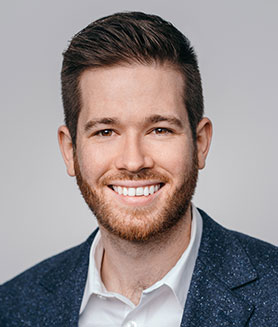Each year, doctoral students in clinical and/or counseling psychology participate in the Association of Psychology Postdoctoral and Internship Centers (APPIC) match process for doctoral internships. Applications are prepped and preened over the fall semester and then submitted as the seasons change. In early spring semester, a new group of psychologists-in-training are matched for their predoctoral internship in psychology. If you’re one of them this year, congratulations!
In recent years, the balance between internship sites and applicants has swung in favor of the latter. Now, many internship sites go unfilled and/or participate in Phase II match processes to fill their occupancies. The statistics for applicants matching are greater than a decade prior; in fact, 95% matched in 2019’s APPIC process.
Internship is the capstone educational experience for health service psychologists-in-training, as it offers the greatest number of hours solely practicing therapy, providing assessments, receiving supervision, and/or offering supervision to practicum trainees. And it’s usually the final hurdle before the doctoral degree is awarded. Amidst this exciting and overwhelming news of matching, matched interns should consider the following list, as these ideas will help ensure success on site and wherever you go next.
1. Find your people and connect
In comparison to your overall graduate program, internship is a small fraction of time at 12 months. But in that short span, internship provides an opportunity to connect and expand your personal and professional networks. Oftentimes, interns are pushed with a full-time clinical schedule and novel training situations that can foster lifelong bonds with your cohort and supervisors.
Internship may come and go before you know it, but it’s a unique chance to expand your network outside of your home program and gain new perspectives on care from those in training. These people could become close friends and even recommenders for postdocs and careers to come.
2. Find specialized training opportunities and conferences
Whether within your internship training site or beyond, consider opportunities to begin specializing. For example, across the country there are near-constant theoretical/intervention trainings offered. Are you beginning to develop an interest in Acceptance and Commitment Therapy (ACT)? Have you heard intriguing comments about Radically Open-Dialectical Behavior Therapy (RO-DBT)? Or how about a conference about a specific research area of interest?
Frequently, internship sites afford interns continuing education funds (even though you do not have any compulsory need to do so). These funds can help with travel, hotel, airfare, and registration expenses that might be associated with attending trainings or conferences. Find a way to negotiate time into your doctoral internship to commit to specializing, as the interventions and conferences can help you connect with other providers, expand your career horizons, and directly impact your work with clients—what a win-win!
3. Look at career opportunities at the onset of internship
Doctoral internships in psychology often start somewhere between July and September. Between settling into the position, moving to a new location, and possibly completing your dissertation, chances are you’re in for a time of great transition.
However, before you know it, employers will start sending position vacancy listings. For instance, academic careers tend to start listing positions in the fall semester — just as you are settling into the internship. Postdoctoral residencies are listed en masse around winter break. And a tidal wave of university counseling jobs are released in March and April of the spring semester.
4. Consider and plan for when you will take the licensure exam
One of the most attractive resume boosters for employers of health service psychologists is that the Examination of Professional Practice in Psychology (EPPP) has been completed. By passing the EPPP, organizations know you will be license-eligible in the span of a few months, by the completion of postdoc, and/or not need additional time away from work to study and take the exam—setting you apart from other applicants.
Internship is the perfect time to think about your timeline and plan for taking the EPPP. In my case, I began studying in between internship and postdoc, which enabled me to take the exam prior to job applications. Your window of time and demands may necessitate modifications, but planning early on may pay dividends and help you negotiate a higher salary.
5. Complete internship documentation for credentialing
As you finish internship, one of the best things you can do for your career is complete the practicum and internship summary forms for the National Register of Health Service Psychologists. The National Register helps trainees successfully navigate hours banking and credentialing, which can ultimately assist with acquiring a licence, moving states, and even continuing education credits. And they even offer credentialing scholarships for those in training.
Many internship sites have documentation that assists trainees in collecting and signing off on hours, but the forms are often simply given to trainees. Thus, the hours are not banked, verified, or easily transferred between state boards of psychology. Whether you know exactly where you want to live or are uncertain about your next step, banking hours keeps them protected and on hand for when you need them.
Twelve months after starting the internship and you’ll be ready to graduate (as soon as that dissertation is complete)! With a degree in hand, your career path will be yours to discover. By investing in the internship process, getting involved where possible, and planning ahead, trainees can put themselves in a position to succeed.







